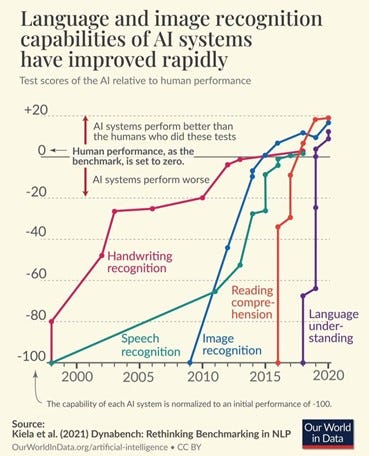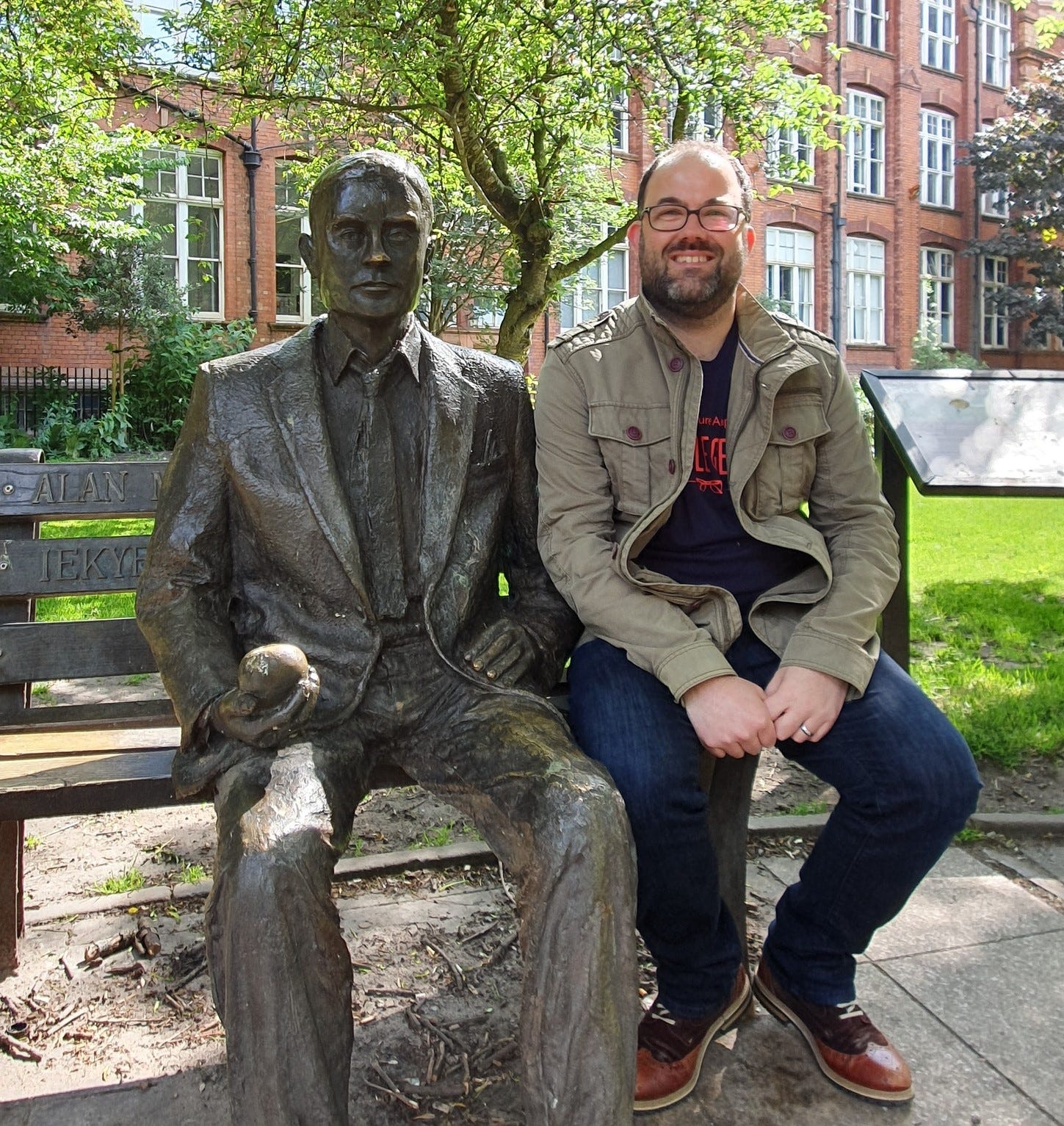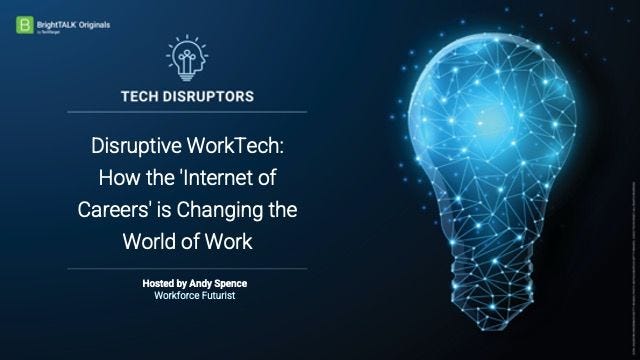Generating a Human Response to Artificial Intelligence on The Future of Work
#WF42 – The Fascinating Evolution of AI From Turing to ChatGPT and Beyond

In 1950, Alan Turing laid down an important foundation of Artificial Intelligence, when he posed the question,
“Can Machines Think?”
72 years later, ChatGPT, using generative AI, is the fastest-growing App of all time.
The ChatBot can’t think, but produces much better responses than Google searches, and can be more entertaining than your WhatsApp chats or Instagram feed.
This article tracks the recent development of generative AI tools in the context of work automation and asks whether ChatBots will take our jobs, where does that leave us humans and generates some interesting questions for society.
The Rapid Advance of Artificial Intelligence - From Alexa To ChatBots and New Friends
In general, Artificial Intelligence, (AI) includes natural language processing, pattern recognition, and machine learning.
We have all probably used AI in recent days with one of our apps, Netflix, Uber, Spotify, Prime.
The way to look at AI is as a continuation of the general automation trend, more algorithms, and advanced statistics.
Generative AI is a type of artificial intelligence that is used to create new content, such as images, videos, and music, based on patterns from existing data. It is a subset of machine learning, that involves training algorithms to recognise patterns in data and make predictions.
ChatGPT, Generative Pre-trained Transformer, is a large language model trained on huge sets of language data. It is popular because it can do tasks that are way beyond simple Google search queries.
It can summarise articles like this for you in the format you specify, it can write code, it can explain things, and do your homework.
I have used it for providing article edits, suggesting speech titles, asking how best to respond to an allergic reaction to a cat, and giving me higher-protein breakfast ideas.
It can also generate poems, stories with your chosen style, and keywords. It can translate foreign languages and provide coaching tips.
The only limits are your imagination.
Basic natural language processors have been around for a while - for example, Alexa is nearly 7 years old, and, Google search was launched 25 years ago.
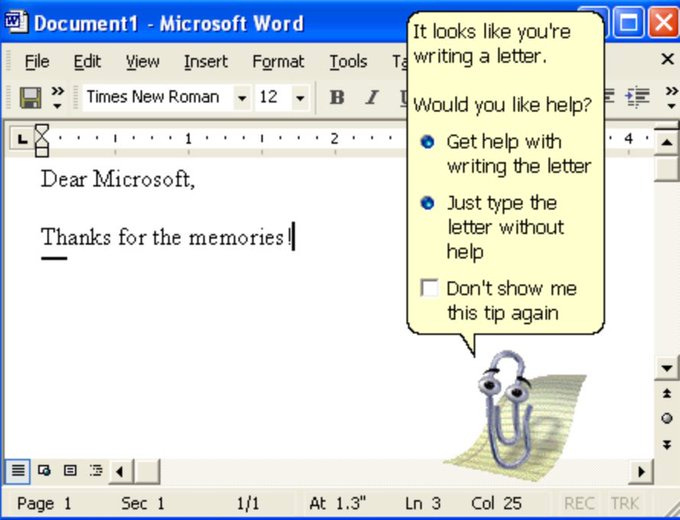
When Buzzfeed announced it would start using ChatGPT to produce content and its stock more than doubled.
OpenAI, developed ChatGPT and DALL-E2, which I used to produce the image used in this article of ‘Alan Turing in the style of Andy Warhol’.
Developing these tools is a high-stakes game played out over industries and countries.
Microsoft owns a slice of OpenAI and is integrating generative AI into its products.
Examples include : automatic meeting notes in Teams, automated reminders of anything you missed in a call. In emails, summarising threads in Outlook, drafting messages with appropriate tone and length. Suggesting first drafts and ways to improve your arguments.
AI-enhanced Bing might finally give Google search a run for its money, giving AI answers alongside traditional search results.
Salesforce has launched Einstein – deriving sales recommendations based on customer data.
Baidu has launched Ernie - the fastest chatbot in the East…
This technology is evolving fast.
OpenAI, launched ChatGPTv4 last week.
On only the 7th day in the public domain, it has made some eye-catching achievements, including :
built a website that creates arcade games
generated an episode of Friends
used a photo of a fridge to get instant cooking recipes

So we are talking about automation, but the longer-term impact of this powerful generative AI is unknown.
You can sign up for your own ChatGPT account here and read more about how it works here.
Turing, Me, and Other Humans
“There are many ways to be smart that ain’t smart like us” Patrick Winston
ChatGPT gives smart responses to queries, however, nobody is suggesting that it is indistinguishable from a human.
The field of artificial intelligence suffers from a naming problem.
Ask 100 psychologists for a definition of ‘Intelligence’ and you will get 100 different answers.
Anthropomorphism is rife – assigning cutesy human characteristics to inanimate objects.
The interaction between humans and machines is fascinating.
I have been intrigued by Turing’s question for over 30 years.
I did a Master’s with AI - a long time before Ms Siri and Alexa. The course was driven by multi-disciplinary questions, with software engineers, philosophers, linguists, and, psychologists.
Engineers have now produced tools way beyond our ability to understand them.
With all the behavioural data we now have, I hope that we will learn more about us humans in the next 10 years than we have in the last 100.
Automation has changed how we work. But rest assured for us human beings, we still have something to contribute:
Adaptability – we need to be able to learn new skills quickly.
Empathy and Emotional Intelligence – the ability to understand and connect with fellow humans on an emotional level.
Critical thinking and complex problem-solving skills – with vast amounts of data available, we need to be able to analyse and make smart decisions.
Communication skills – humans are still better than machines at explaining complex ideas and emotions
Creativity – routine tasks are eliminated leaving us to devote more time and energy to creative projects – such as how to create useful applications of generative AI!
Curiosity – a chatbot doesn’t wake up in the morning and wonder why birds 🐦suddenly appear every time you are near...🎹
Commenting on attempts by ChatGPT to write a song in the style of Nick Cave, the songwriter himself noted that,
"Songs arise out of suffering, by which I mean they are predicated upon the complex, internal human struggle of creation and, well, as far as I know, algorithms don't feel. Data doesn't suffer.”

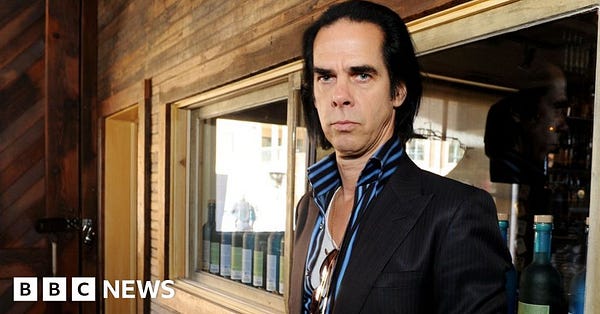
We can program bots and robots to appear to behave like us.
But an inanimate object will never have agency, or the will to survive, like us.
(For those who like reading a bit of philosophy, you will enjoy reading the Chinese Room Argument.)
We will get more sophisticated at detecting whether a song, poem, or article was created by a fellow human, or a bot.
So creators will need to up their game!
Authenticity will not go out of fashion.
Machines will never evolve Curiosity, so here are a few questions that I have generated…
NOTE - If this post is too long for email subscribers, you can read the web version here.
Will Chatbots Take Our Jobs?
In the work context, people are trying this technology to
create travel recommendations for hotels, write wills, list real estate descriptions, job descriptions, lesson plans, articles, sales pitches, writing code, writing romantic novels, and project management schedules.
The question then arises from workers,
“If ChatGPT can do my work just as well as me, what will happen to my job?”
A new paper from researchers at OpenAI and the University of Pennsylvania, indicate that 80% of the US workforce could have at least 10% of their work tasks affected by AI technology, while around 19% of workers may see at least 50% of their tasks impacted.
Some earlier research by Michael Webb at Stanford University, shows that better-paid, white-collar jobs may be most exposed to AI’s spread.

If ChatGPT can do some of your work now, you should be thinking about your future career path.
Each new technological wave unleashes ambition, innovation and fear before society accommodates and moves forward.
As Carlota Perez notes, it is not inevitable that we will see universal benefits of new technology waves, “Without a set of policies giving clear directionality to markets, the needed synergies for innovation and investment cannot materialise.”
ChatGPT does offer some HR-type solutions. For example, LinkedIn, has launched generative AI assistant to help with recruitment ads and profile.


Tweaking 20th century management processes is one thing, But Chat GPT has enabled people to imagine a different future.
One where autonomous agents are looking for best team combinations before you even realise there is a need for a vacancy.
“We are a little bit Scared”
We have unleashed technology that goes way beyond our ability to understand or regulate it.
The CEO of OpenAI, Sam Altman, has said,
“Society, has a limited amount of time to figure out how to react to that, how to regulate that, how to handle it.”
Unusually we have early free access to these tools.
This is because these language models feed off masses of data, which is why we have access to the tools now – providing a useful service as free testers. But that will change soon, as the service is monetised.
Elon Musk has voiced concern that Microsoft, which hosts ChatGPT on its Bing search engine, had disbanded its ethics oversight division.
“There is no regulatory oversight of AI, which is a *major* problem. I’ve been calling for AI safety regulation for over a decade!”
We are right to be a little scared,
“The thing that I try to caution people the most is what we call the ‘hallucinations problem’,” Altman said. “The model will confidently state things as if they were facts that are entirely made up.”
This generates some Questions as a society we need to obsess about:
How do we prevent an AI digital divide, where some people have access to these powerful tools, and others don’t?
Who should own the IP for these tools given they utilise data belonging to the public?
How can we best regulate systemic bias and discrimination baked into how screening algorithms sift people for jobs?
Can we prevent algorithms that foster polarisation or radicalisation on online platforms?
It is worth thinking about, whether formal jobs are the best way to organise our work in the future?
With an ageing workforce in some countries – a better question than, Will chatbots take our jobs, is, what if chatbots DON’T take our jobs?
Generative People Transformers
Tools like ChatGPT can mimic human behavior and intelligence. They are part of a long-term general automation trend that will have a big impact on the way we work in the future.
The challenge for society is to hive off the work that the machines can do, so we can focus on uniquely human skills such as empathy, critical thinking, and creativity will remain essential in the future of work.
As industries restructure and tasks are reallocated to humans and machines, we will need all the critical thinking skills available to make sure this is done smartly and equitably.
Workforce Futurist Collective Intelligence – a Poll For You
Tech Disruptors
I am excited to be hosting a new Webinar Series hosted by BrightTALK.
The fist episode is a topic close to my heart, “How the ‘internet of careers’ is changing the world of work”.
Thursday March 23 2:30pm GMT 10.30am EST
I will talk with Dror Gurevich the CEO of the Velocity Foundation who aim to build a cross industry standards that will enable the Internet of Careers.
Sign-up (its free) and watch the series, and let me know who else you would like to see interviewed.
I will also be contributing to a webinar, Maneuvering in the Gig Economy, on 3rd April, with Dr Sarah Ali – Global Economist at Radancy, and Dan Taylor from Deel.


